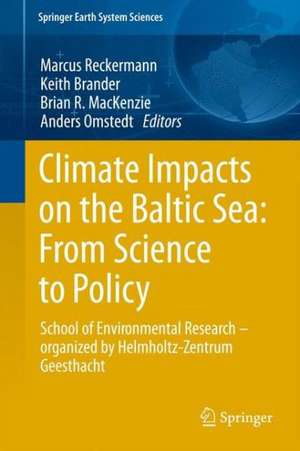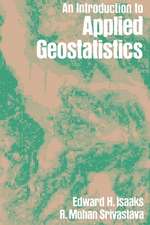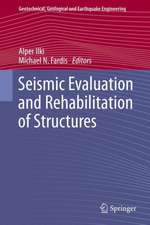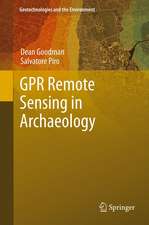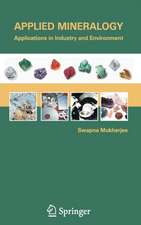Climate Impacts on the Baltic Sea: From Science to Policy: School of Environmental Research - Organized by the Helmholtz-Zentrum Geesthacht: Springer Earth System Sciences
Autor Marcus Reckermann Editat de Keith Brander, Brian R. MacKenzie, Anders Omstedten Limba Engleză Paperback – 9 mai 2014
| Toate formatele și edițiile | Preț | Express |
|---|---|---|
| Paperback (1) | 637.28 lei 6-8 săpt. | |
| Springer Berlin, Heidelberg – 9 mai 2014 | 637.28 lei 6-8 săpt. | |
| Hardback (1) | 641.71 lei 6-8 săpt. | |
| Springer Berlin, Heidelberg – 28 iun 2012 | 641.71 lei 6-8 săpt. |
Din seria Springer Earth System Sciences
- 18%
 Preț: 1023.74 lei
Preț: 1023.74 lei - 18%
 Preț: 1405.09 lei
Preț: 1405.09 lei - 18%
 Preț: 953.65 lei
Preț: 953.65 lei - 18%
 Preț: 888.18 lei
Preț: 888.18 lei - 15%
 Preț: 653.00 lei
Preț: 653.00 lei - 18%
 Preț: 1394.03 lei
Preț: 1394.03 lei - 18%
 Preț: 897.65 lei
Preț: 897.65 lei - 18%
 Preț: 997.83 lei
Preț: 997.83 lei -
 Preț: 386.22 lei
Preț: 386.22 lei - 15%
 Preț: 642.03 lei
Preț: 642.03 lei - 15%
 Preț: 639.73 lei
Preț: 639.73 lei - 24%
 Preț: 804.33 lei
Preț: 804.33 lei - 15%
 Preț: 642.51 lei
Preț: 642.51 lei - 15%
 Preț: 640.24 lei
Preț: 640.24 lei - 18%
 Preț: 1244.89 lei
Preț: 1244.89 lei - 15%
 Preț: 646.30 lei
Preț: 646.30 lei - 20%
 Preț: 586.49 lei
Preț: 586.49 lei - 18%
 Preț: 733.46 lei
Preț: 733.46 lei - 18%
 Preț: 1229.73 lei
Preț: 1229.73 lei - 15%
 Preț: 641.53 lei
Preț: 641.53 lei - 20%
 Preț: 578.61 lei
Preț: 578.61 lei - 24%
 Preț: 819.29 lei
Preț: 819.29 lei -
 Preț: 374.37 lei
Preț: 374.37 lei - 24%
 Preț: 680.56 lei
Preț: 680.56 lei - 20%
 Preț: 576.88 lei
Preț: 576.88 lei - 18%
 Preț: 973.56 lei
Preț: 973.56 lei - 24%
 Preț: 829.74 lei
Preț: 829.74 lei - 15%
 Preț: 639.73 lei
Preț: 639.73 lei - 15%
 Preț: 639.90 lei
Preț: 639.90 lei - 15%
 Preț: 695.85 lei
Preț: 695.85 lei - 18%
 Preț: 948.92 lei
Preț: 948.92 lei - 18%
 Preț: 958.38 lei
Preț: 958.38 lei - 24%
 Preț: 789.37 lei
Preț: 789.37 lei - 18%
 Preț: 956.99 lei
Preț: 956.99 lei - 24%
 Preț: 799.22 lei
Preț: 799.22 lei - 20%
 Preț: 569.00 lei
Preț: 569.00 lei - 15%
 Preț: 634.82 lei
Preț: 634.82 lei -
 Preț: 408.86 lei
Preț: 408.86 lei
Preț: 637.28 lei
Preț vechi: 749.73 lei
-15% Nou
Puncte Express: 956
Preț estimativ în valută:
121.96€ • 132.43$ • 102.44£
121.96€ • 132.43$ • 102.44£
Carte tipărită la comandă
Livrare economică 22 aprilie-06 mai
Preluare comenzi: 021 569.72.76
Specificații
ISBN-13: 9783642435263
ISBN-10: 3642435262
Pagini: 232
Ilustrații: XIV, 218 p.
Dimensiuni: 155 x 235 x 12 mm
Greutate: 0.33 kg
Ediția:2012
Editura: Springer Berlin, Heidelberg
Colecția Springer
Seria Springer Earth System Sciences
Locul publicării:Berlin, Heidelberg, Germany
ISBN-10: 3642435262
Pagini: 232
Ilustrații: XIV, 218 p.
Dimensiuni: 155 x 235 x 12 mm
Greutate: 0.33 kg
Ediția:2012
Editura: Springer Berlin, Heidelberg
Colecția Springer
Seria Springer Earth System Sciences
Locul publicării:Berlin, Heidelberg, Germany
Public țintă
ResearchCuprins
Preface.- 1 International agreements and Baltic Sea environmental management.- 2 HELCOM Baltic Sea Action Plan: An ecosystem approach to the management of human activities.- 3 Some aspects of the Baltic Sea marine system.- 4 A basic introduction to climate modeling and its uncertainties.- 5 Impacts of climate change, including acidification, on marine ecosystems and fisheries.- 6 Towards Integrated Ecosystem Assessments (IEAs) of the Baltic Sea – Investigating ecosystem state and historical development.- 7 Sustainable climate science.
Notă biografică
Marcus Reckermann is the head of the International BALTEX Secretariat at Helmholtz-Zentrum Geesthacht (HZG), Germany. As a biological oceanographer, he has participated in research cruises in the Baltic Sea, North Sea, North Atlantic and Arabian Sea, and published several papers on marine biogeochemistry. His current work involves the editing of scientific books and reports (e.g. the BACC book), and the organization of workshops and conferences. The International BALTEX Secretariat represents the administrative support of the scientific BALTEX community.
Keith Brander is a senior researcher at the Technical University of Denmark, Charlottenlund. His expertise ranges from fish population dynamics and fisheries management to plankton and marine ecosystems, with an emphasis on environmental effects. Recent interests are in detecting climate change impacts, resolving conflicting objectives for biodiversity and food production, and helping fisheries and marine ecosystem management to adapt to the impacts of climate change. He was lead author on fisheries and marine ecosystems for the fourth IPCC report.
Brian R. MacKenzie is a professor for marine fish population ecology at the Technical University of Denmark, Charlottenlund and at the University of Copenhagen, Denmark. His research interests include natural and anthropogenic (climate change, fishing) effects on fish populations and marine ecosystems. Recently, he has been working on climate change effects on cod and its habitat throughout the North Atlantic, including the Baltic Sea.
Anders Omstedt is a professor at the University of Gothenburg, Sweden. His main research interests have been the ocean climate and the physics of ice covered water bodies, in particularly the Baltic Sea and the polar oceans. His recent research work is oriented towards climate change and modelling of coupled physical-biogeochemical systems, including the carbon cycle. He has been involved in the BALTEX programme from its very beginning.
Keith Brander is a senior researcher at the Technical University of Denmark, Charlottenlund. His expertise ranges from fish population dynamics and fisheries management to plankton and marine ecosystems, with an emphasis on environmental effects. Recent interests are in detecting climate change impacts, resolving conflicting objectives for biodiversity and food production, and helping fisheries and marine ecosystem management to adapt to the impacts of climate change. He was lead author on fisheries and marine ecosystems for the fourth IPCC report.
Brian R. MacKenzie is a professor for marine fish population ecology at the Technical University of Denmark, Charlottenlund and at the University of Copenhagen, Denmark. His research interests include natural and anthropogenic (climate change, fishing) effects on fish populations and marine ecosystems. Recently, he has been working on climate change effects on cod and its habitat throughout the North Atlantic, including the Baltic Sea.
Anders Omstedt is a professor at the University of Gothenburg, Sweden. His main research interests have been the ocean climate and the physics of ice covered water bodies, in particularly the Baltic Sea and the polar oceans. His recent research work is oriented towards climate change and modelling of coupled physical-biogeochemical systems, including the carbon cycle. He has been involved in the BALTEX programme from its very beginning.
Textul de pe ultima copertă
The Baltic Sea area is an old cultural landscape with a well developed international framework for monitoring, assessing and managing its marine ecosystems. It provides a good case study for other regions where such management is being set up. The chapters in this book are based on lectures given at a summer school on the Baltic Sea island of Bornholm in the summer of 2009. They cover a range of topics, spanning from detailed descriptions of political agreements that protect the marine environment, to basic modelling instructions, to an assessment of the possible impacts of climate change on the marine ecosystem, to a reflection on the role of climate scientists and their responsibility in society. This interdisciplinary book is primarily directed at students and lecturers of the environmental disciplines to provide an overview of the possible impacts of climate change on the Baltic Sea. It is also intended to serve as a background reference for scientists and policy makers, both for the Baltic Sea area and more generally. The book is a contribution to the BALTEX programme and to the BONUS+ projects ECOSUPPORT and Baltic-C.
Caracteristici
Interdisciplinary view on climate change impacts on the (Baltic) sea Bridges the gap to policy making and sustainable environmental management Good case study for other regions in the process of setting up similar management Includes supplementary material: sn.pub/extras
